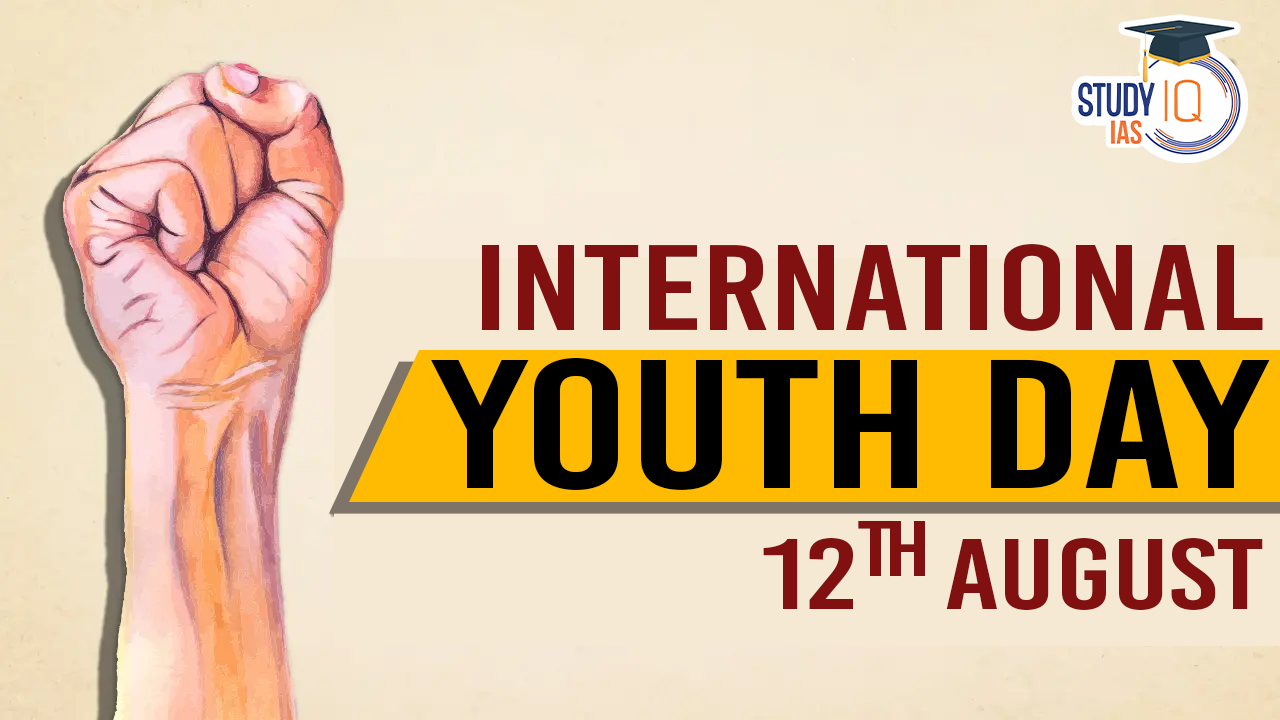Table of Contents
International Youth Day is a global observance held every year on August 12 to recognise the potential, achievements, and challenges of young people across the world. It serves as a reminder of the important role youth play in shaping societies and driving change. In 2025, International Youth Day will be observed on Tuesday, August 12, under the theme “Local Youth Actions for the SDGs and Beyond”.
This year holds special significance as it marks the 30th anniversary of the World Programme of Action for Youth, with the official global celebration set to take place in Nairobi, Kenya, in partnership with UN-Habitat.
History of International Youth Day
The origins of International Youth Day date back to 1991, when the idea was first proposed by young people at the World Youth Forum held in Vienna, Austria. The participants recognised the need for a dedicated day to celebrate youth contributions and address their unique challenges.
In 1999, the World Conference of Ministers Responsible for Youth adopted a resolution recommending that August 12 be declared as International Youth Day. Later that year, on December 17, 1999, the United Nations General Assembly officially endorsed the proposal.
The first International Youth Day was celebrated on August 12, 2000, marking the start of an annual tradition that continues to unite young people, governments, and organisations worldwide.
Theme of International Youth Day 2025
-
Theme: “Local Youth Actions for the SDGs and Beyond”
The theme for 2025 focuses on the critical role of youth in implementing the United Nations Sustainable Development Goals (SDGs) at the local level. It highlights how young individuals are translating global objectives into practical, community-driven solutions that address pressing social, economic, and environmental issues.
The emphasis is on empowering young leaders to take ownership of development initiatives, ensuring that global ambitions become actionable realities in towns, cities, and rural areas.
Significance of International Youth Day 2025
International Youth Day is not merely a celebration — it is a call to action. In 2025, the significance of the day is amplified by the focus on local governance and youth participation, including:
-
Strengthening Youth Involvement in Decision-Making
Encouraging municipal and regional governments to provide platforms for youth participation in policy formulation and urban planning. -
Inclusive Policy Development
Advocating for inclusive policies that address the needs of diverse youth groups, including marginalised and underrepresented communities. -
Capacity Building for Young Leaders
Providing skills training, mentorship, and resources to help young people become effective community leaders and changemakers. -
Accelerating Sustainable Development Goals (SDGs)
Mobilising youth-led projects that contribute to climate action, quality education, gender equality, and other key SDGs.
International Youth Day 2025 Celebrations
The official global event will be hosted in Nairobi, Kenya, and will bring together youth leaders, policymakers, municipal officials, UN representatives, and development practitioners.
Key activities will include:
-
Panel Discussions on the role of youth in local SDG implementation.
-
Workshops and Training Sessions for capacity building and skill development.
-
Project Showcases featuring innovative youth-led initiatives from around the world.
-
Networking Opportunities to connect young leaders with decision-makers and potential collaborators.
Across the globe, countries and communities will mark the day with youth summits, cultural events, educational campaigns, volunteer drives, and social media movements.
Why International Youth Day Matters
According to the United Nations, youth make up over 1.2 billion people worldwide, representing 16% of the global population. By 2030, this number is expected to grow significantly. This demographic powerhouse is central to global progress, but young people also face barriers such as unemployment, lack of access to quality education, and exclusion from decision-making processes.
International Youth Day provides:
-
A platform for advocacy, amplifying the voices of young people.
-
Recognition of achievements, celebrating youth contributions to culture, innovation, and social change.
-
Opportunities for dialogue, bringing youth and policymakers together to find solutions to shared challenges.
The Role of Youth in Localising SDGs
The Sustainable Development Goals, adopted by the UN in 2015, aim to address global challenges such as poverty, inequality, and climate change by 2030. While these goals are global in nature, their success depends heavily on local action — and young people are at the forefront of this transformation.
From community recycling projects to digital literacy programs and entrepreneurial startups tackling unemployment, youth-led initiatives are proving that impactful change often begins at the grassroots level.
How to Participate in International Youth Day 2025
Here are some ways individuals and organisations can engage in the celebrations:
-
Organise a community project aligned with the SDGs.
-
Host discussions or workshops to raise awareness about youth issues.
-
Share inspiring youth stories on social media using official hashtags like #YouthDay2025 and #LocalYouthForSDGs.
-
Collaborate with local government bodies to advocate for inclusive youth policies.
Participation doesn’t always require large resources — even small actions can contribute to meaningful change.
Conclusion
International Youth Day 2025 is more than just a date on the calendar — it is a global movement to recognise, empower, and mobilise young people as the changemakers of today and tomorrow. The theme “Local Youth Actions for the SDGs and Beyond” reinforces the idea that real progress begins within communities, with young leaders driving sustainable and inclusive development.
By investing in youth leadership, fostering inclusive governance, and supporting innovative local projects, the world can take a major step toward achieving the 2030 Agenda for Sustainable Development.


 India–EU FTA Concluded: Key Benefits, ...
India–EU FTA Concluded: Key Benefits, ...
 Promotion of Equity in Higher Education ...
Promotion of Equity in Higher Education ...
 Bhairav Light Commando Battalion: India�...
Bhairav Light Commando Battalion: India�...

























